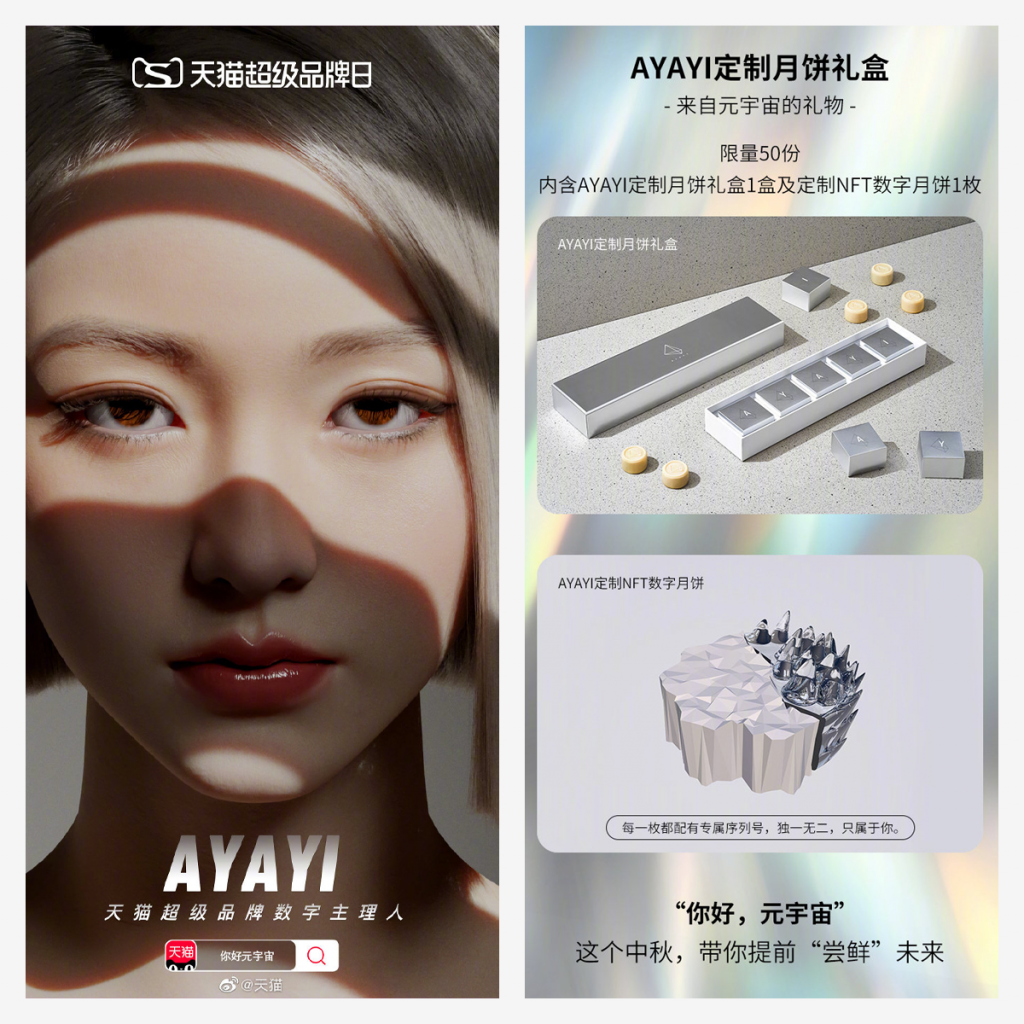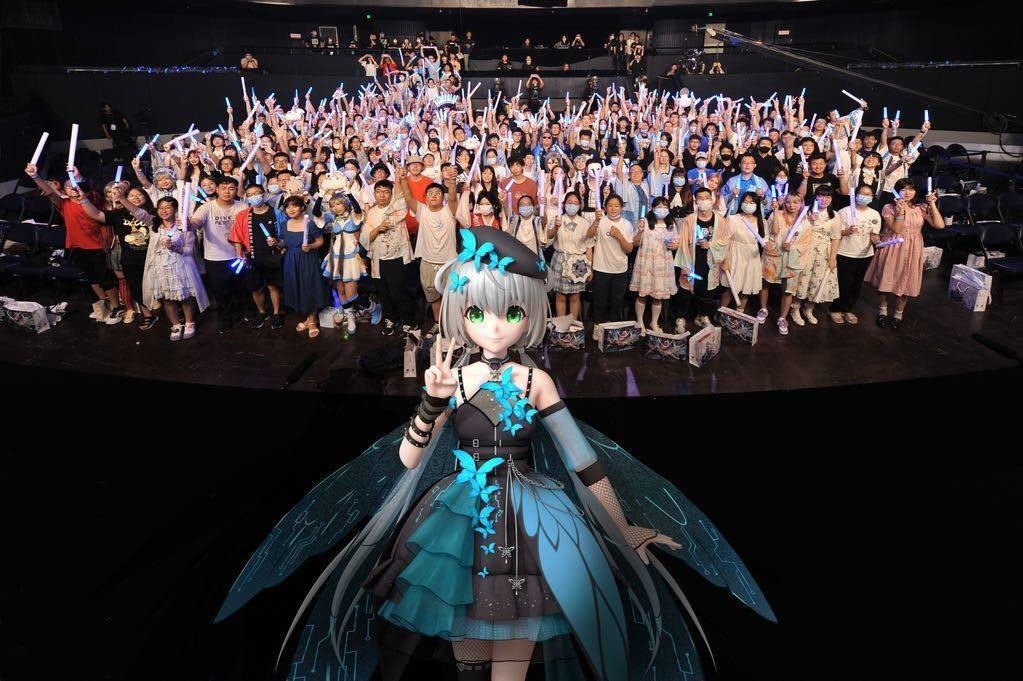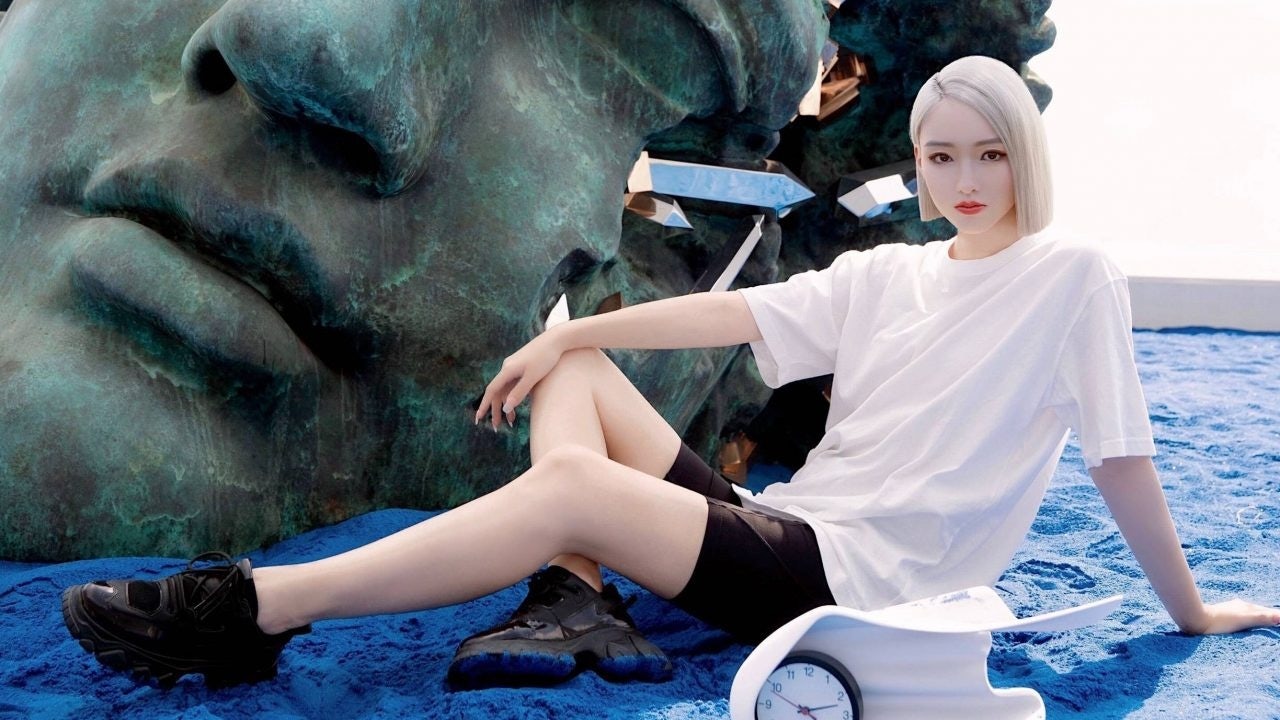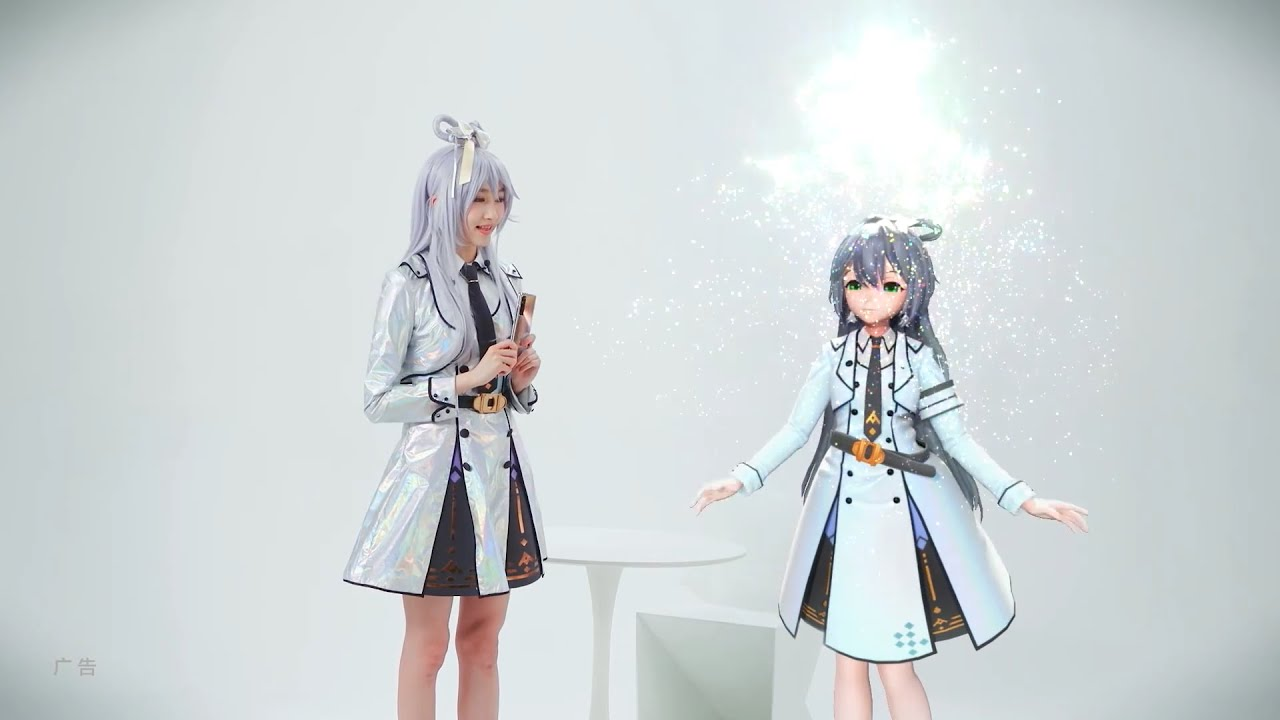Key Takeaways:#
The rise of virtual influencers is inevitable, becoming the fruit of the digital environment we live in — 5G, AI, Blockchain, and NFTs.
As Gen Zers show increasing interest in two-dimensional (“二次元”) ACG content, a growing number of brands are adopting virtual KOLs to entice these fans.
Virtual idols may not yet replace real celebrities, but one of their biggest advantages is their ability to collect data and engage with every single customer.
“Did you think virtual people don’t need to work?” So says Ayayi, China’s first meta-human, created by Ranmai Technology, in a post on Xiaohongshu. The virtual KOL joined Hangzhou-based conglomerate Alibaba recently as digital manager of Tmall Super Brand. There she juggles multiple identities: NFT artist, digital curator, fashion brand manager, top digital person, and so on. Her first task was to jointly release NFT moon cakes for this year’s Mid-Autumn Festival on Tmall Super Brand Day.

Ayayi, who was created in May of 2021, is one of the many AI influencers in China's virtual idol industry, which grew to a value of 540 million in 2020, an increase of 70.3 percent year on year, and is expected to reach 970 million this year, according to data from iiMedia Research. As idols continue to be a key marketing strategy to drive company sales in China, local companies are experimenting with digitally-created KOLs. These influencers present a safer alternative to traffic stars like Kris Wu, Zhang Zhehan, Zhao Wei, and Lucas Huang, all currently caught up in scandals.
Virtual idols are fully AI-developed characters that bear a close resemblance to humans but are powered by advanced animation technology. They make realistic facial expressions and body movements and mimic the actions of a real person. Virtual idols are blank. When they are "born," they only have a voice and appearance developed digitally by their creators.
Since the beginning of 2021, several other Chinese companies have turned to the stability of these digital partners. Hangzhou-based C-beauty giant Florasis released its namesake AI ambassador, domestic haircare label Centaine announced the virtual KOL Ling as its brand spokesperson, and China jewelry maker IDO created the digital idol Beco. As such, Jing Daily investigates whether a new era of idols is here and exactly how these virtual influencers can benefit brands.
China’s biggest virtual idol: Luo Tianyi#
In the nine years since her “outset,” virtual singer Luo Tianyi has become a virtual celebrity. In 2019, she had a holographic concert with China’s top pianist, Lang Lang. The event was a huge success, attracting thousands of fans to the arena. Luo’s fans have been writing songs, composing music, and drawing illustrations for her. These creations have provided content and helped her develop a personality controlled by the creator. Compared to real-life stars, virtual idols grow up on UGC (user-generated content) and — to a point — are malleable to fans.

“An obvious advantage of virtual celebrities is that their image is controllable,” states Aslada Gu, product & innovation director at Gusto Luxe, which is helping to provide innovative marketing solutions to brands. Undisputedly, scandals and bad behavior are issues you rarely see from them. And, while real people have limitations, the application scenarios of virtual idols are more extensive. Gu observes that a “virtual spokesperson can be 24/7 present on multiple sites, [while] providing the possibility to its followers to interact with them one-on-one.”
Why should brands adopt virtual idols?#
The rise of virtual influencers is no coincidence, considering the fruit of the digital environment we live in — 5G, AI, Blockchain, and NFTs. According to iiMedia Research, of the over 80 percent of Chinese netizens who follow celebrities online, 63.6. percent also follow virtual idols. About half of them spend more than 78.50 (RMB 500) per month on virtual idols, and 37.6 percent express a willingness to spend an even greater amount.
Moreover, virtual idols were first produced in the two-dimensional world (“二次元”) and have a big influence in this arena, which is beloved by Gen Zers who show increasing interest in ACG (anime, comics, games) content. Gu continued, stating, “Virtual idols are an inevitable trend. They are a marketing tool brands need to start paying attention to if they want to build a connection with the highly digitalized younger generation.” And as the virtual idol industry undergoes continuous development, iiMedia consulting analysts believe that the commercial value of digital celebrities will continuously grow.
Last year, Luo Tianyi made her first appearance on Taobao livestream, attracting over 2.7 million viewers. This year, she was invited by CCTV to perform at the Spring Festival Gala, becoming the first virtual idol to attend the most anticipated event of the year in the process. Now, the virtual singer collaborates with renowned brands like Pechoin, Occitane, Clarins, and many more. Although these idols may not replace real celebrities, Gu stated that one of their biggest advantages (making them more and more indispensable to company CRM) is “they can process and transform thousands, if not millions, of consumer behaviors into direct data.”
How can brands collaborate with them?#
Just like real influencers, brands need to select a collaborator carefully. Firstly, they must consider whether they fit in the label’s DNA and image. Second, they need to understand the content that will best resonate with their followers. And lastly, they should select the most appropriate platforms for promoting their creations. On the latter, there are two types of virtual idols: the “entertainment” type similar to real celebrities (Luo Tianyi) or the “fashion KOLs,” which appear in fashion magazines and are used by premium brands as influencers (Ling and Ayayi).
Although the initial technology is quite expensive now, the development and widespread use mean the cost will ultimately pay off in time. In the future, we may also see virtual customer service, 24-hour live broadcasts hosted by virtual anchors, and much more.
Today, global brands like Dior, L’Oréal, and Florasis have developed their own in-house virtual idols. For instance, L’Oréal’s Mr. Ou is a character invented by the company: a French-Chinese, 24-year-old beauty entrepreneur who is particularly interested in sustainability.

But selecting the most appropriate products to fit a virtual influencer’s image is still something brands need to gauge. Moreover, unreasonable fan community behavior may be a potential risk for virtual idols just like real ones. Hence, Gu reminds us that brands adopting virtual influencers should still pay attention to government crackdowns on real-life idols, as new rules could imply risk. However, it is a greater danger for brands to fail at innovating and not live up to Gen-Z consumer expectations.


